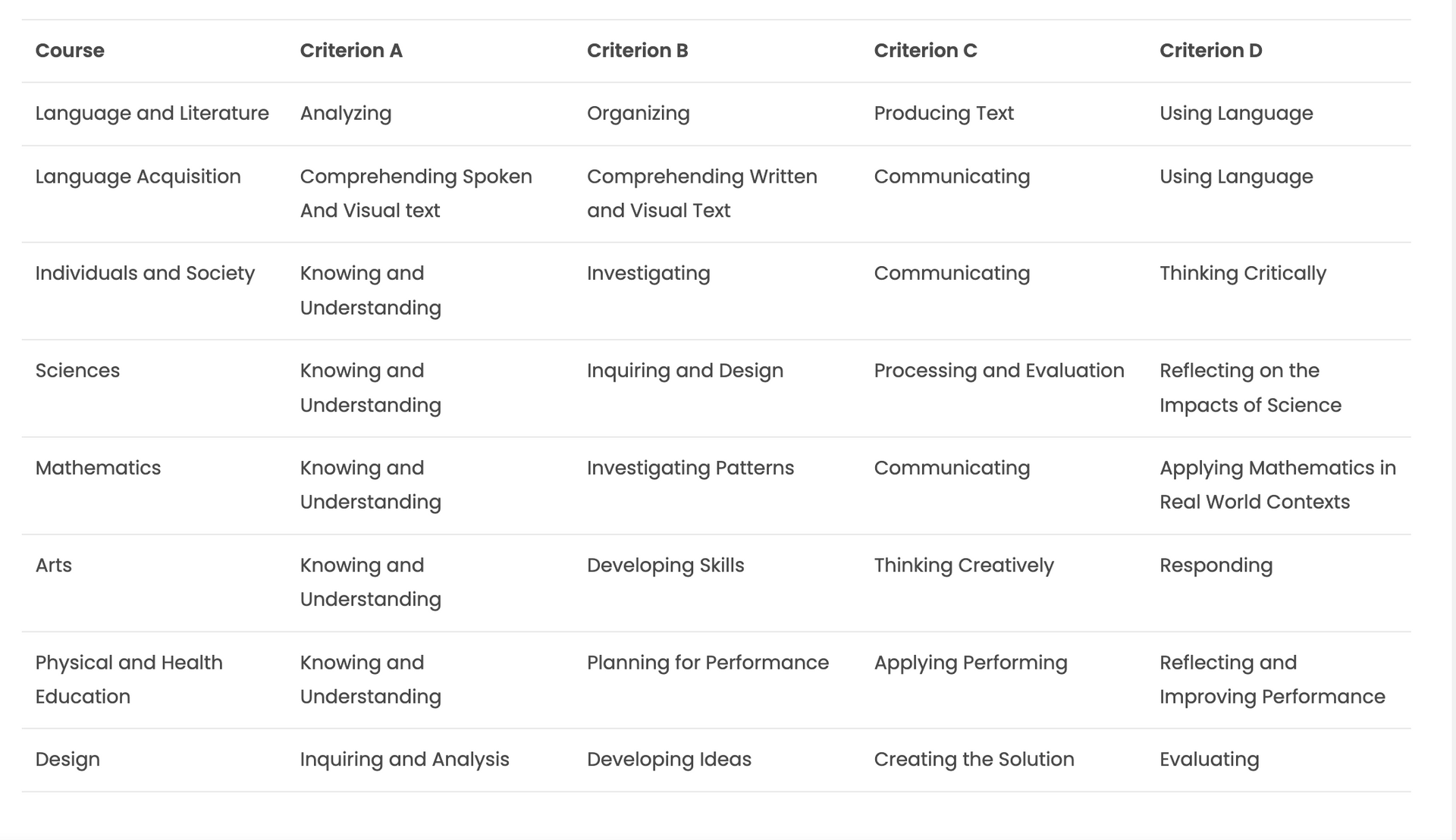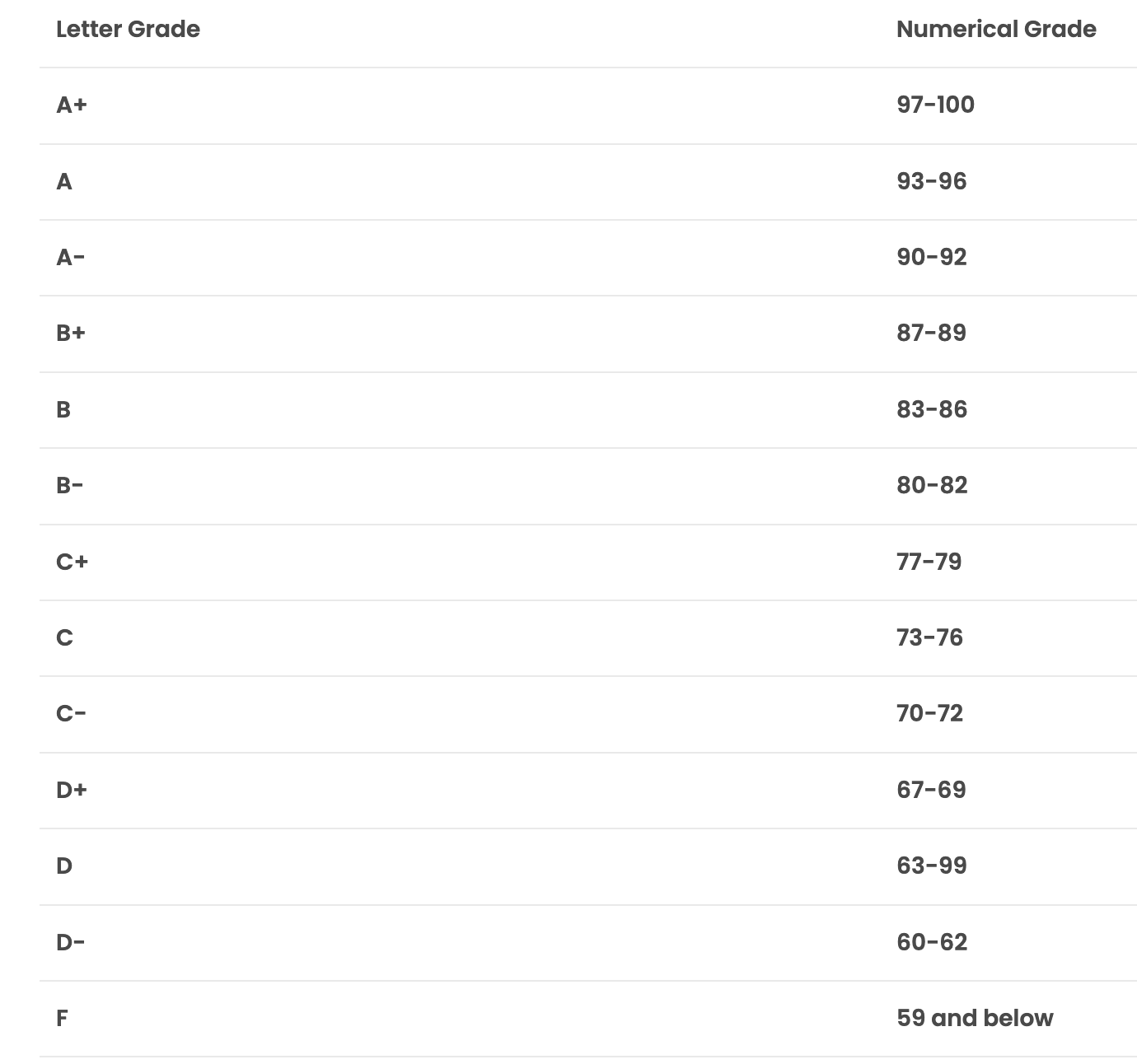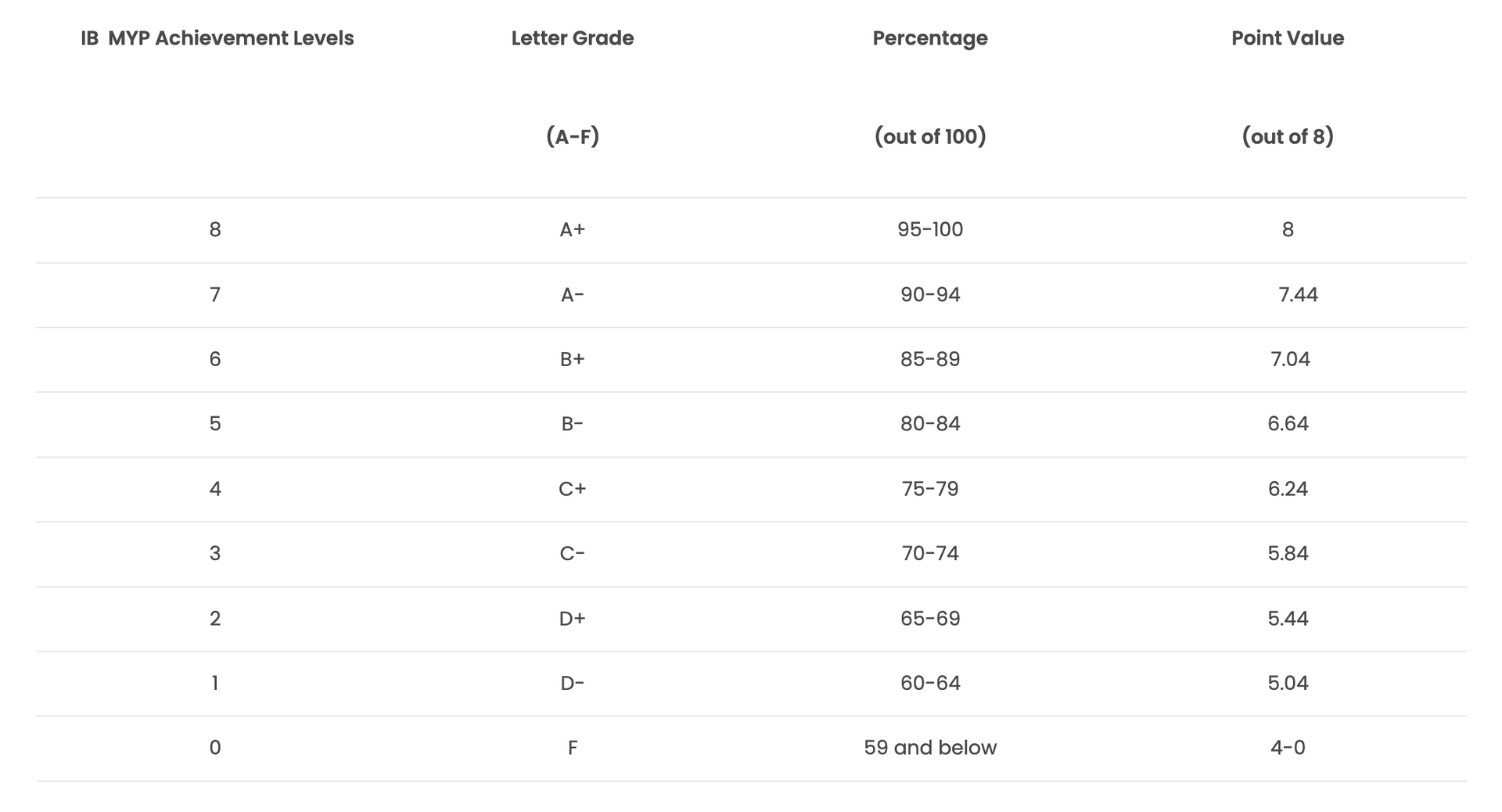IB Assessment Policy
Purpose
To communicate to all stakeholders in our community the IB MYP expectations for assessing student progress and achievement, as well as the method for reporting the results of the assessments. Stakeholders in our community include administrators, teachers, students, and parents.
All middle school students at Saint Mary’s Catholic School are involved in the International Baccalaureate Middle Years Programme. As part of the IB Programme, we believe that meaningful learning occurs when teachers and students aim for purposeful and appropriately challenging learning goals. We believe that effective assessment practices inform instructional decisions, provide feedback to guide improvement efforts and prompt self- reflection of both teachers and students.
Assessments at Saint Mary’s Catholic School encompass the IB beliefs which
- Promote positive student attitudes towards learning
- Promote the development of higher –order cognitive skills by providing rigorous objectives in all subject areas
- Promote a deeper understanding of subject content by supporting inquiry learning and real- world contexts
- Is anchored in authentic learning tasks and contexts
- Entail reflection, evaluation and measurement
- Improve and promote subsequent learning through feedback that is clear, informative, timely and relevant
- Evaluate the effectiveness of the teaching process.
Approaches to Learning (ATL)
Approaches to Learning in the IB MYP is an integral part of the assessment of student work. ATL skills provide valuable support in developing the learning attributes students can use throughout their lives. ATL skills help students “learn to learn.” All teachers are encouraged to use the ATL skills as a guide to help students improve and achieve at higher levels.
The following are a list of ATL skills
- Communication – exchanging thoughts, messages and other information effectively, both in written and oral formats
- Social – working collaboratively with others, actively listening and participating in classroom discussions, giving and receiving feedback from peers and teachers
- Self- management – managing time and tasks effectively, identifying strengths and weaknesses of personal learning strategies, practicing focus and concentration skills
- Research – finding, interpreting, verifying, recording information from a variety of sources and using citation procedures accurately
- Thinking – analyzing text, ideas, issues, connecting and applying knowledge and skills in solving problems across the curriculum
Implementation of formative and summative assessment is consistent with IB expectations
Formative assessments are ongoing throughout the teaching and learning process and aim to promote learning through regular, consistent and frequent feedback. This process helps learners to improve knowledge and understanding, to foster self- motivation and enthusiasm for learning, to engage in thoughtful reflection, to develop the capacity for self –assessment, and to recognize criteria for success.
Formative assessments can include classwork, observations, quizzes, exit slips, reflection activities, writing assignments, homework, questioning activities, debates, and experiments.
Summative assessments are generally undertaken at the end of a unit or topic and aim to provide teachers and students with a clear insight into student understanding and mastery. Summative assessments can, and usually should, assess several elements of learning simultaneously in order to inform and lead students to improve their learning skills. Summative assessment will enable students, teachers and parents to gauge the level of student performance and enable greater academic achievement, as well as to reach a more complete understanding of the topic studied.
Summative assessments can include tests, projects, performance tasks, presentations, portfolios, essays, and end of course exams.
Common Practices: Using the MYP assessment criteria & Determining achievement levels
The IB MYP involves a unique teaching and learning philosophy. The teachers at Saint Mary’s Catholic School adhere to the requirements of the principles of MYP Assessment as stated in “From Principles into Practice,” and the objectives and criteria prescribed in the individual subject guides which are published by the International Baccalaureate organization for the Middle Years Programme.
IB MYP grades are reported by individual teachers as overall achievement levels using scales predetermined by the IB MYP. The MYP assessment is described as criterion- related, as it is based upon predetermined criteria that are scaled according to their relative importance in each subject area. The IB MYP identifies a set of objectives for each subject group, which are directly related to the assessment criteria of that particular subject.
Teachers may communicate specific IB grades to students and parents on individual assignments or on grade forms sent to parents. IB Grades are not listed as part of the report card grade for Saint Mary’s Catholic School.
There are four criteria assessed for each subject in the MYP. These are listed in the chart below. This criteria varies for each level in the Middle Years Programme. Achievement levels range on a scale from 0-8 and each level descriptor varies by IB year level either year 1 (6th grade) year 2 (7th grade) or year 3 (8th grade).
Subject groups must address all strands of all four assessment criteria at least twice in each year of the MYP.
Saint Mary’s MYP Assessment Criteria Across Subjects

IB MYP General Grade Descriptors
Below are the General Grade Descriptors provided by IB. These are to be used to describe the overall achievement (from the four criteria categories listed above) of assessment criteria objectives for all of the 8 subject areas within the MYP. Therefore the achievement levels are in the range of 1-7 since they represent overall achievement. Most middle school students will score in the 3-5 range.
Achievement - Level Descriptor
1 Produces work of very limited quality. Conveys many significant misunderstandings or lacks understanding of most concepts
and contexts. Very rarely demonstrates critical or creative thinking. Very inflexible, rarely using knowledge or skills.
2 Produces work of very limited quality. Expresses misunderstandings or significant gaps in understanding for many concepts and contexts. Infrequently demonstrates critical or creative thinking. Generally inflexible in the use knowledge or skills, infrequently applying knowledge and skills
3 Produces work of acceptable quality. Communicates basic understanding of many concepts and contexts, with occasionally significant misunderstandings or gaps. Begins to demonstrate some basic critical and creative thinking. Is often inflexible in the use of knowledge and skills, requiring support even in familiar classroom situations.
4 Produces good quality work. Communicates basic understanding of most concepts and contexts with few misunderstandings and minor gaps. Often demonstrates basic critical and creative thinking. Uses knowledge and skills with some flexibility in familiar classroom situations, but requires support in unfamiliar situations.
5 Produces generally high-quality work. Communicates secure understanding of concepts and contexts. Demonstrates critical and creative thinking, sometimes with sophistication. Uses knowledge and skills in familiar classroom and real- world situations and, with support, some unfamiliar classroom and real-world situations.
6 Produces high-quality, occasionally innovative work. Communicates extensive understanding of concepts and contexts. Demonstrates critical and creative thinking, frequently with sophistication. Uses knowledge and skills in familiar and unfamiliar classroom and real-world situations, often with independence.
7 Produces high-quality, frequently innovative work. Communicates comprehensive, nuanced understanding of concepts and contexts. Consistently demonstrates sophisticated critical and creative thinking. Frequently transfers knowledge and skills with independence and expertise in a variety of complex classroom and real-world situations.
The relationship of MYP assessment principles and practices with required systems for grading and reporting
Each teacher retains autonomy in each subject level in the MYP in determining achievement levels with a points based or percentage based system on all assignments.
Students and parents receive interim grades every 4 weeks and quarterly grades at the end of each marking period. Theses grades are delivered via computer email to the parents of the student. In addition, semester and yearly reporting of grades reflect a 10 point numerical scale, mandated by the Catholic Diocese.
Parent Conferences are offered formally twice a year for teachers, students and parents to meet and discuss student progress. Parents are also always encouraged to contact any and all teachers, at any time concerning their child’s progress.
Below is the grading scale used for the middle school students at Saint Mary’s Catholic School.

Teachers may also use a conversion chart like the one listed below, to equate IB grades with numerical grades.

Other assessments at Saint Mary’s Catholic School
At Saint Mary’s Catholic School we also use an additional form of Assessment called the NWEA MAP Test. MAP (Measures of Academic Progress) Growth is a computer adaptive assessment designed to measure student’s achievement and growth, and inform instruction. Students in grades 1-8 will take the assessment for Reading and Mathematics. This test creates a personalized assessment experience by adapting to each student’s learning level precisely measuring progress and growth for each individual student. The NWEA MAP Test is administered across the Richmond Catholic Diocese.
These tests are administered three times per year. The data obtained from the MAP tests can be used by teachers to monitor and adjust their instruction to meet the student’s individual needs. At the end of the testing year, parents receive a report analyzing their child’s progress over the course of the year to highlight areas of growth and areas of improvement.
In addition, all students in the middle school at Saint Mary’s Catholic School participate in ACRE testing (Assessment of Children/youth Religious Education for the National Catholic Educational Association). This test, also required by the Diocese, tests the knowledge of all Catholic teachings.
Timelines and procedure for review of policy/who developed the policy
This Assessment policy was developed by Carole Forkey (St. Mary's Former IB MYP Coordinator) and the IB Middle school teachers in the IB MYP at Saint Mary’s Catholic School in Richmond, Virginia. The policy will be reviewed annually for updates to policy and procedures. Last updated September 2022.



